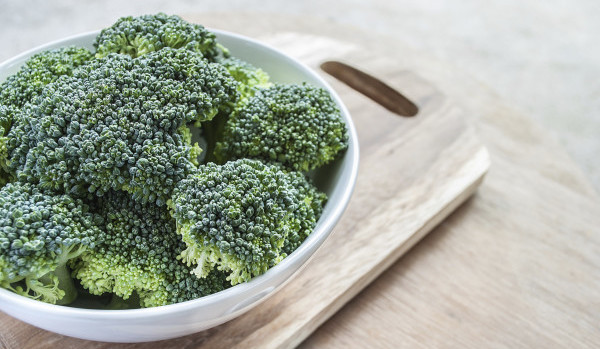A diagnosis of breast cancer evokes terrifying thoughts of invasive surgery, loss of body image or sexuality and even death. According to a recent study by Vanderbilt-Ingram Cancer Center and Shanghai Center for Disease Control and Prevention researchers women can increase their survivability of breast cancer by eating more cruciferous vegetables, like broccoli, cabbage, turnips, Brussels sprouts and kale.
Breast cancer is the most common cancer diagnosed among women, affecting approximately one in eight women during their lifetime. It is also more than 90 percent survivable if detected early. Controllable risk factors for breast cancer include:
Alcohol use– Excess alcohol consumption, more than one to two glasses daily, may increase your risk for breast cancer.
Pregnancy and Childbirth – Women who have had one or more children before age 30 are less likely to develop breast cancer, especially those who breast fed their babies.
Hormone replacement therapy – Synthetic hormone exposure, including that from birth control pills or as a treatment for the symptoms of menopause, increases your risk of breast cancer.
Maintain a healthy weight– Scientists believe that women who are overweight or obese produce more estrogen, which can trigger the development of breast cancer.
According to materials released via Newswire, the study authors evaluated the dietary patterns of more than 4,800 Chinese breast cancer survivors diagnosed with stage 1 to stage 4 breast cancer from 2002 to 2006.
Breast cancer is categorized according to the degree to which it has spread within the body. Stage 0 indicates that the cancer cells or non-cancerous abnormal cells have not spread from the original part of the breast in which they started. Stage 4, also known as advanced or metastatic breast cancer, describes cancer that has spread beyond the breast and nearby lymph nodes to other organs of the body.
Researchers adjusted for demographics, clinical characteristics and lifestyle factors before determining the risk of mortality and breast cancer recurrence among participants. Remarkably, women who consumed the highest quantity of cruciferous vegetables per day reduced their risk of breast and total mortality by 62 percent, and reduced recurrence of breast cancer by 35 percent, when compared to women who ate the least cruciferous vegetables.
Cruciferous vegetables contain phytochemicals which exert anti-cancer effects known as isothiocyanates and indoles. Isothiocyanates may help prevent cancer by promoting the elimination of carcinogenic compounds, drugs and toxins, and preventing the poisonous effects of these chemicals. Whereas indoles block estrogen receptor sites on breast cells, stimulate enzymes that metabolize carcinogens, enhance DNA repair and promote apoptosis, which reduces the risk of breast cancer.
The study authors recommend further studies to evaluate the bioactive compounds in cruciferous vegetables and other factors related to breast cancer outcomes.








